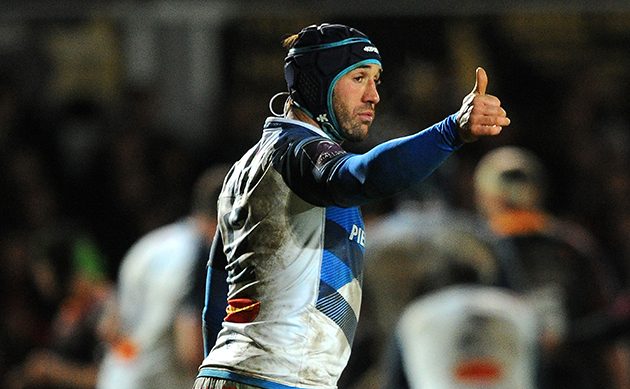More and more professional players in France are unemployed as they fail to earn contracts from Top 14 clubs. We look at the growing problem…
The summer of 2013 was one of the best in Romain Cabannes‘s career. He went off on his holidays as a Top 14 winner, a member of the Castres XV that caused a shock in the final of the French championship with their 19-14 defeat of Toulon’s galacticos. Cabannes had scored the winning try that beat Clermont in the semi-final and the centre was thriving in a back-line that included Rory Kockott, Remi Tales and Brice Dulin.
Three years on and Cabannes has just announced his retirement. He hasn’t suffered a career-ending injury, nor fallen out of love with the game he’s been playing professionally since 2003. It’s worse than that – no club signed him before the transfer deadline expired on 15 June.
He’s not alone. A report in last month’s Midi Olympique listed 38 professional players currently out of work, but according to Provale, the players’ union, the numbers could be much higher. “More and more players refuse to say that they’re on the dole,” explained Robins Tchale-Watchou, the Montpellier second-row and president of Provale. “They regard it as a professional failure but also a social one. There is a psychological mark that is more and more of an issue. Today the players want to be helped (by the union) but with a certain discretion.”

Players’ voice: Montpellier lock Robins Tchale-Watchou heads the players’ union. Photo: Getty Images
Tchale-Watchou, 33, has enjoyed a long career with Auch, Stade Francais, Perpignan and now Montpellier, but he is sympathetic to those less fortunate than himself who find themselves unwanted. Some are prepared to take a step down, joining the amateur ranks of Fédérale 1 with the determination to help their new clubs win promotion to the ProD2 next May. Others are less adaptable. “To really take charge of a player’s welfare, he must admit that he no longer has a job,” says Tchale-Watchou.
Some don’t appreciate the gravity of the situation and hang on to the hope that they’ll be one of the two supplementary players the LNR rules permit each club to sign up until 1 February, or failing that they’ll be hired as short-term injury cover.
“The difficulty is to make them admit that they must prepare for a career after rugby,” says Tchale-Watchou. “It’s brutal, a part of your life has just come to an end. Only 5-10% of players chose the moment to leave (the sport).”
Among the 38 unemployed players listed by Midi Olympique last month was Erik Lund, brother of former England flanker Magnus. He has not been signed by a club since he left Biarritz, but at 37 Lund’s situation is less serious than that of Florian Houerie, the 23-year-old Castres prop who made seven league appearances last season. Neither he nor 24-year-old hooker Julien Beziat were retained by Castres and no club has signed them since they were released.

On the outside: Are too many players being left out of rugby’s pro ranks? Photo: Getty Images
Cabannes left Castres with no animosity for his former club. His wrath is directed squarely at Pau. “Several months ago Pau made me a proposition,” Cabannes told Midi Olympique. He claims he and Simon Mannix met, discussed an offer and everything looked set. Mannix said he’d be in touch. “He never called, never sent the pre-contract,” said Cabannes. “I’ll be frank: he f***ed me over. Simple as that.”
A story has two sides so while Mannix might dispute Cabannes’s version of events, the outcome was that the 31-year-old threequarter found himself with no club. He approached Biarritz, where he spent three seasons a few years ago, in the hope they might offer him a deal but they’d already completed their recruitment for the season, and what with their recent financial problems they were in no position to help out.
“Frankly, I’m a little disgusted with it all,” admitted Cabannes who, rather than go to Provale for help, has decided to end his career. “I no longer have the desire to keep battling,” he said last month. “At the moment I’m with my family, taking advantage of the summer and I have no worries.”
Unfortunately the message from Tchale-Watchou isn’t so optimistic. Asked by Rugbyrama if he believed the economic fragility of professional rugby in France is going to make the existence of players even more precarious, he replied: “The problem is a lot more profound than we think it. More than ever our sport is evolving and it’s imperative that its protagonists – players, coaches and directors – should reflect the image of our sport in the years ahead.”
See Rugby World’s September issue for a preview of the new Top 14 season. For the latest subscription offers, click here.





